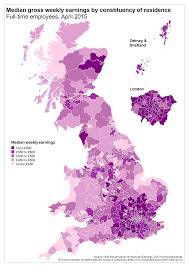A constituency refers to a specific geographic area or a group of people that is represented by an elected official, such as a member of parliament, a congressperson, or a council member. The concept of a constituency is an essential aspect of democratic systems, as it ensures that citizens have a voice in the decision-making process and allows elected representatives to advocate for the interests and concerns of their constituents.
Constituencies can be defined at various levels of government, depending on the specific political system. For example, in parliamentary systems, constituencies are typically defined within a larger district or electoral area. The boundaries of constituencies are often determined based on population size, geographical factors, community interests, or other relevant criteria. This ensures that each constituency has a roughly equal number of eligible voters, promoting fairness and representation.
The constituents within a constituency are the individuals who reside or are registered to vote within that specific area. They form a diverse group with various backgrounds, opinions, and needs. It is the responsibility of the elected representative to understand and address the concerns and interests of their constituents.
Elected representatives interact with their constituents through various means, such as public meetings, town halls, and constituency offices. These interactions allow constituents to express their views, seek assistance, or share feedback with their representatives. Constituents may approach their elected officials with specific issues, such as healthcare, education, infrastructure, or social policies. Elected representatives, in turn, strive to represent and advocate for the best interests of their constituents in legislative debates and decision-making processes.
Constituencies are also crucial during election periods. Candidates campaign within their constituencies, reaching out to voters, presenting their platforms, and seeking support. The constituents have the power to choose their representative through the electoral process, casting their votes based on their assessment of the candidates' qualifications, policies, and alignment with their own values and priorities.
Constituencies play a vital role in democratic governance, as they facilitate representation, accountability, and responsiveness. They ensure that elected officials remain connected to the needs and aspirations of the people they serve, promoting a direct link between citizens and the political system. By understanding the concerns and priorities of their constituents, elected representatives can work towards addressing issues, crafting legislation, and making decisions that reflect the will and interests of the people they represent.
In conclusion, constituencies are fundamental components of democratic systems, defining specific geographic areas or groups of people represented by elected officials. They provide citizens with a voice and allow elected representatives to advocate for the interests of their constituents. Through interactions, feedback, and representation, constituencies foster a direct link between the people and the political system, promoting responsive and accountable governance.




No comments yet
Be the first to share your thoughts!